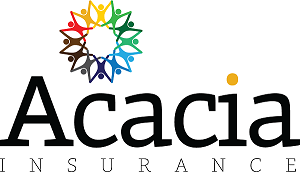Our not-for-profit industry is an important part of the Australian economy, employing 1.38m people (11% of jobs in Australia) and contributing an estimated $129b of the country’s gross value, added in direct and indirect contributions. Given this scale, diversity and complexity of services, there are a range of unique insurance risks and workers compensation considerations, specific to the not-for-profit industry.
An interesting observation into the practices of insurance buyers is that in many circumstances the premium cost for workers compensation significantly outweighs that of a client’s general insurance program. However, surprisingly, many clients choose to engage a professional adviser for general insurance but not for the complex arena of workers compensation.
Acacia Insurance, with its niche focus on not-for-profit organisations, brings together industry experts to shed light on emerging risks and effective risk management strategies. In this article we delve into the insights shared by Robert Wallace, leader of the Workers Compensation Practice and Martin van Rhoon, Insurance Adviser and Director at Acacia Insurance.
Changes and emerging risks within the not-for-profit sector
The not-for-profit industry experiences its own set of challenges and evolving risks. Wallace highlights the impact of claims costs on workers compensation premiums, emphasising the need for effective claims management to mitigate long-term effects. While prevention through safety practices is crucial, once a claim occurs early intervention and better claims outcomes become paramount. This approach benefits the injured employee, the organisation and helps reduce the overall premium impact.
Wallace underlines the importance of understanding accurate business classifications and premium calculations, as errors can significantly impact costs. The nature of the work in this sector, such as caring for patients with challenging conditions, can result in physical injuries as well as high rates of psychological injuries. Return-to-work processes can be complex due to these unique challenges.
When we talk about premium calculations, many employers who are subject to the ‘Claims Experience Rating’ formulas, are unaware of what lies ahead and how their costs could escalate over the next three years, as a result of the claims they have incurred, which is further compounded by significant increases to premium rates. In some cases this can be beyond the organisations ability to fund, notwithstanding the capping mechanisms that are in place. This can often be a very uncomfortable discussion for finance directors to have with their boards, if they are not prepared.
Considerations for volunteers
Volunteers, often an integral part of the not-for-profit industry, do not fall under workers compensation coverage. Organisations must be aware that separate insurance solutions may be necessary to protect these individuals. It’s crucial to understand the insurance coverage requirements for volunteers and ensure appropriate safeguards are in place, and if you’re not sure, you should speak to your business insurance adviser.
Acacia Insurance’s approach to mitigating risks
Acacia Insurance distinguishes itself in the workers compensation advisory landscape by offering extensive experience and expertise in the field. With over 40 years of industry experience, the team provides solutions focused on clients unique needs.
Unlike many brokers or in-house HR professionals, Acacia Insurance specialises in both business insurance AND workers compensation, helping organisations optimise their risk management strategies, ensure accurate business classifications and premium calculations and facilitate efficient claims processes. Partnering with experts like Acacia Insurance helps not-for-profit organisations to put in place comprehensive protection for their employees, volunteers and the vital work they do within their communities.
The information in this article is general only, it doesn’t take into account your business or situation. You should speak to your insurance adviser or insurance broker about your needs before making any changes or decision. As insurance advisers, we are not authorised to and unable to provide you with legal advice and this article does not purport to do so. We recommend you seek independent legal advice on any matters in this article that might concern legal matters.

